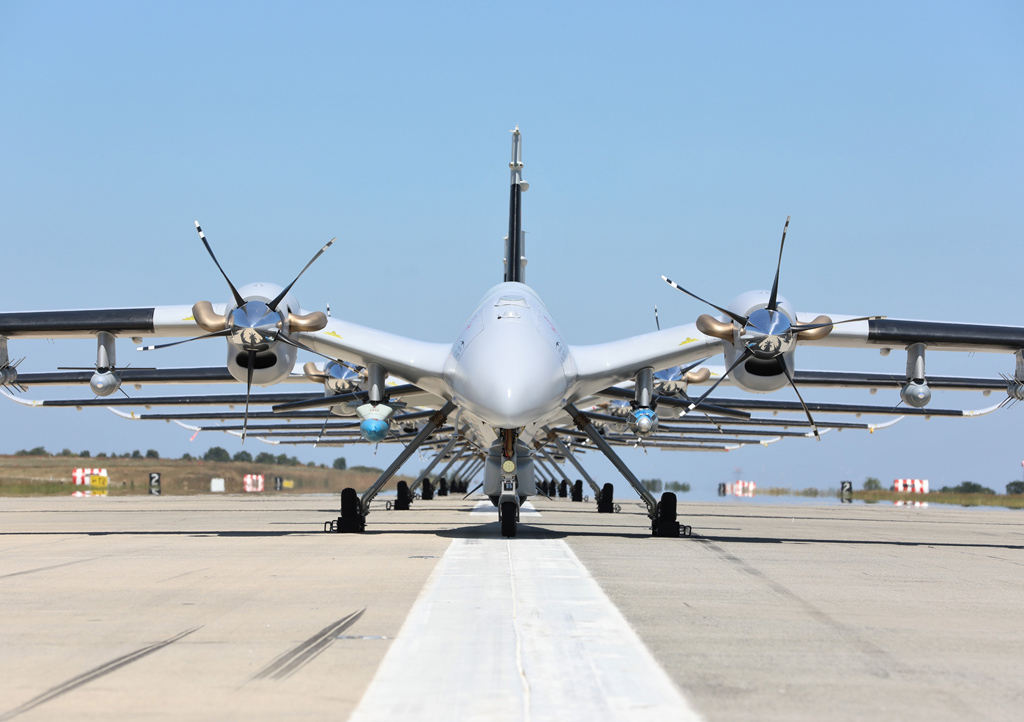European Sky Shield Initiative | Capacities, Criticisms, and Türkiye’s Contribution
The European Sky Shield Initiative (ESSI), spearheaded by Germany, emerged in response to escalating missile threats, particularly from Russia, following Moscow’s aggressive actions in Ukraine
Sibel Düz
Muhammed Sefa Koçakoğlu


Deadly Algorithms | Destructive Role of Artificial Intelligence in Gaza War
Israel has been enhancing its military capabilities by extensively using AI technologies in both defense and offensive operations. Defense systems like the Iron Dome use AI-supported radars to detect and intercept missile threats automatically, thereby minimizing human intervention and increasing operational efficiency. Similarly, AI-based offensive systems such as Habsora and Lavender offer autonomous functionalities by eliminating human involvement in target detection and attack planning. However, the employment of these technologies in civilian areas has resulted in substantial civilian casualties, and open sources provide substantial evidence that Israel has violated international law during these military operations.
Sibel Düz
Muhammed Sefa Koçakoğlu

This edition sheds light on Türkiye’s approach to mitigating economic constraints, strengthening defense exports, and leveraging diplomatic influence to shape the regional and global security order in 2025.
The present Report examines Israel’s attacks from legal perspective depend ing on the relevant rules of international law. In this sense, the Report handles three main issues. The first is whether Israel’s attacks can be justified on the basis of the right to self-defense. The second concerns the violations of international humanitarian law and the related crimes resulting from the violations. Finally, the Report evaluates the ongoing judicial processes initiated against or related to Israel.

Amid regional turmoil, Türkiye’s strategic security outlook remains focused on countering terrorism, particularly the PKK. Against the backdrop of ongoing conflicts in Syria and Iraq, Türkiye confronts the persistent threat of mass migration and instability spillover. In response, Türkiye has implemented measures to secure its borders, including the establishment of buffer zones within Iraqi territory to prevent terrorist infiltration.

One year after the outbreak of the civil war on April 15, 2023, this report examines the origins of the crisis in Sudan, its cost and key actors, the policies and objectives of international powers in the country, and the steps and initiatives taken to resolve the conflict. It also considers the potential for a new Darfur crisis in the future and offers policy recommendations for resolving the current crisis.
SETA Security Radar | Türkiye’s Geopolitical Landscape in 2024
In this new volume of SETA Security Radar, we analyze the main dynamics shaping Türkiye’s security and geopolitical landscape with references to the most significant foreign policy and security issues throughout 2023.
Murat Yeşiltaş
Bilgehan Öztürk
Gloria Shkurti Özdemir
Murat Aslan
Kutluhan Görücü
Mehmet Devrim
Çağatay Mehmet Güler
Tunç Demirtaş
Sibel Düz
Rıfat Öncel


Remote Control | Aerial Elimination of the PKK’s Terrorist Leaders and Operatives
Delving into the core of this study, we leverage data derived from two distinguished repositories—the Terrorism Analysis Platform and Türkiye’s Enemy Killed in Action Dataset—to compose an authoritative report. Our focus lies on the profound examination of the intricate effects of UAV deployment in counterterrorism endeavors, particularly pertaining to the PKK’s organizational structure, command hierarchy, recruitment of skilled human resources, access to essential material resources, and the dynamic tactical metamorphosis undergone by the terrorist organization. Through this rigorous analysis, we aim to shed illuminating light on the multifaceted role of UAVs and their profound impact on the protracted battle against terrorism.
Sibel Düz
İsmail Muhammet Üzen
This study discusses in detail the historical development of quantum technology and its military and civilian applications as well as potential future developments.
The People’s Alliance’s senior members, the AK Party and the MHP, have worked together seamlessly since the very beginning. They did not allow crises to erupt ahead of the 2023 elections either. In this sense, the People’s Alliance demonstrated unity – whereas the Nation Alliance was bogged down in internal strife. It is possible to argue that the ruling alliance could signal unity mainly due to its perception by the electorate as a sincere and straightforward group. Specifically, the People’s Alliance did not pursue short-term interests or signal its intention to change its course when it could negotiate from a position of strength. Another contributing factor was the complete agreement between the AK Party and the MHP on the ‘presidency’ system of government. Whereas the Nation Alliance pledged to adopt an ‘augmented’ parliamentary system, Erdoğan and Bahçeli insisted that Türkiye must not drift away from its current political system. Accordingly, one might argue that the People’s Alliance shall remain intact unless one of those two movements changes its mind about the presidential system. That is obviously not the only factor, yet there is reason to believe that the AK Party and the MHP will continue to collaborate as long as the former’s policies and vision for the future appeal to the partner.

This paper provides a comparative analysis of the specific and singular foreign policy topics and files, as well as the paradigms guiding the foreign policy preferences of both alliances on a macro level.
In this new volume of SETA Security Radar, we analyze the main dynamics shaping Türkiye’s security and geopolitical landscape with references to the most significant foreign policy and security issues throughout 2022.




